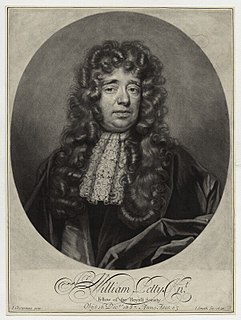A Quote by Jonathan Swift
The tiny Lilliputians surmise that Gulliver's watch may be his god, because it is that which, he admits, he seldom does anything without consulting.
Related Quotes
When the Lilliputians first saw Gulliver's watch, that "wonderful kind of engine...a globe, half silver and half of some transparent metal," they identified it immediately as the god he worshiped. After all, "he seldom did anything without consulting it: he called it his oracle, and said it pointed out the time for every action in his life." To Jonathan Swift in 1726 that was worth a bit of satire. Modernity was under way. We're all Gullivers now. Or are we Yahoos?
The orator, who may be silent without danger, may praise without difficulty and without reluctance; and posterity will confess that the character of Theodosius might furnish the subject of a sincere and ample panegyric. The wisdom of his laws and the success of his arms rendered his administration respectable in the eyes both of his subjects and of his enemies. He loved and practised the virtues of domestic life, which seldom hold their residence in the palaces of kings.
When God calls a man, He does not repent of it. God does not, as many friends do, love one day, and hate another; or as princes, who make their subjects favourites, and afterwards throw theminto prison. This is the blessedness of a saint; his condition admits of no alteration. God's call is founded upon His decree, and His decree is immutable. Acts of grace cannot be reversed.God blots out His people's sins, but not their names.
The wise man does nothing but what can be done openly and without falseness, nor does he do anything whereby he may involve himself in any wrong-doing, even where he may escape notice. For he is guilty in his own eyes before being so in the eyes of others; and the publicity of his crime does not bring him more shame than his own consciousness of it.
The heart that delights in God and longs only to see His glory advance will seldom be conscious of sacrifice. God in His wisdom asks that we first love Him and then live in keeping with that core value. He does not want His people to think of what they do as sacrificial, even though from the world's point of view it may be just that. Gratitude for grace of God will always be found near the center of the Biblical Christian's most powerful motivations.
We are compelled by the theory of God's already achieved perfection to make Him a devil as well as a god, because of the existenceof evil. The god of love, if omnipotent and omniscient, must be the god of cancer and epilepsy as well.... Whoever admits that anything living is evil must either believe that God is malignantly capable of creating evil, or else believe that God has made many mistakes in His attempts to make a perfect being.
There's a whole slew of wonderful speculation of flying in a fanciful way. Gulliver is one of the central examples; Swift has the hum of Arabian Nights in his ear with Gulliver's Travels. The difference is in scale - Gulliver as a kind of Sinbad kind of figure, the way he is picked up and carried. Just to finish up with Scheherazade, I do think that The Arabian Nights could be considered as a great book on women's position in the world.





































